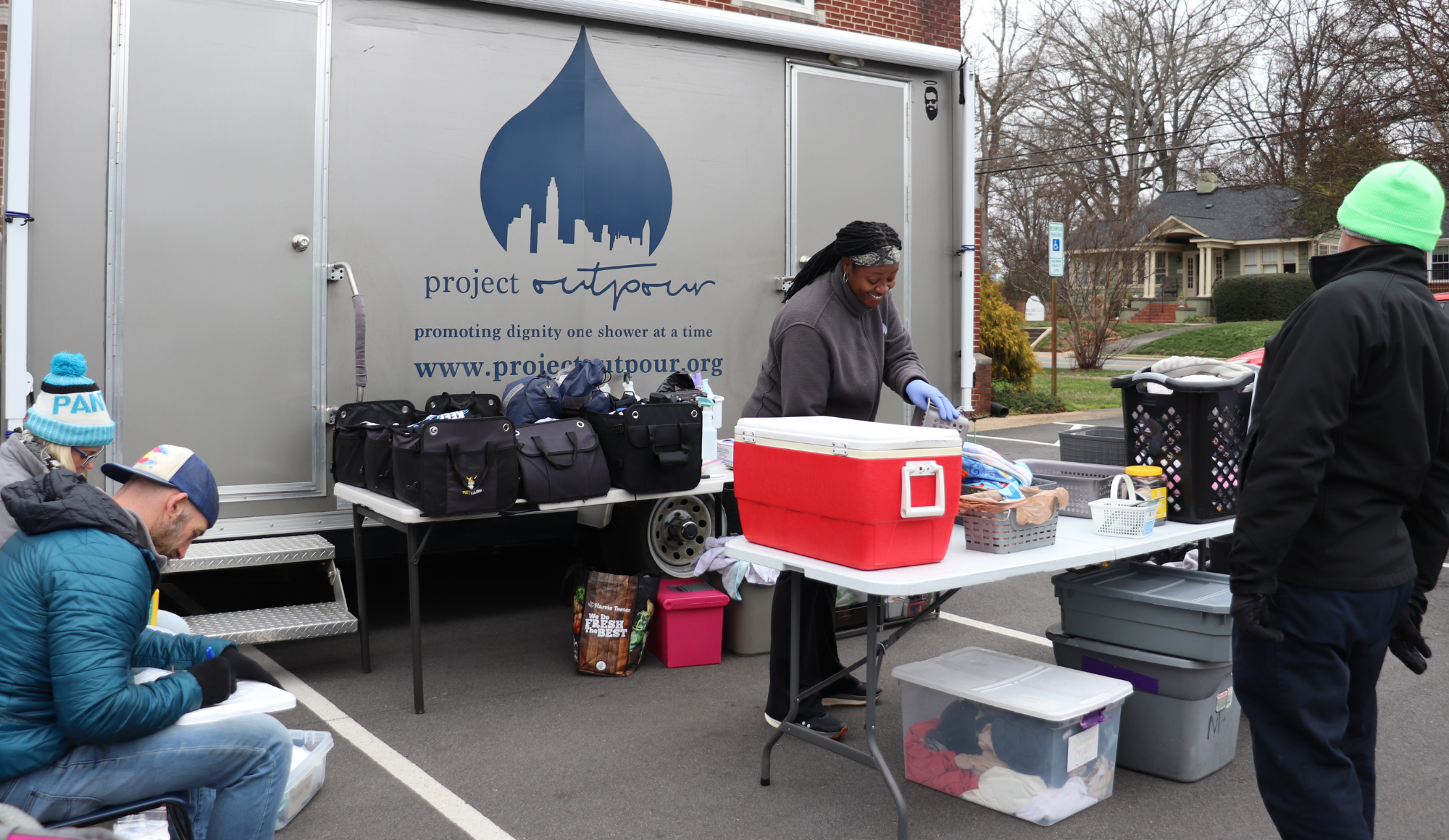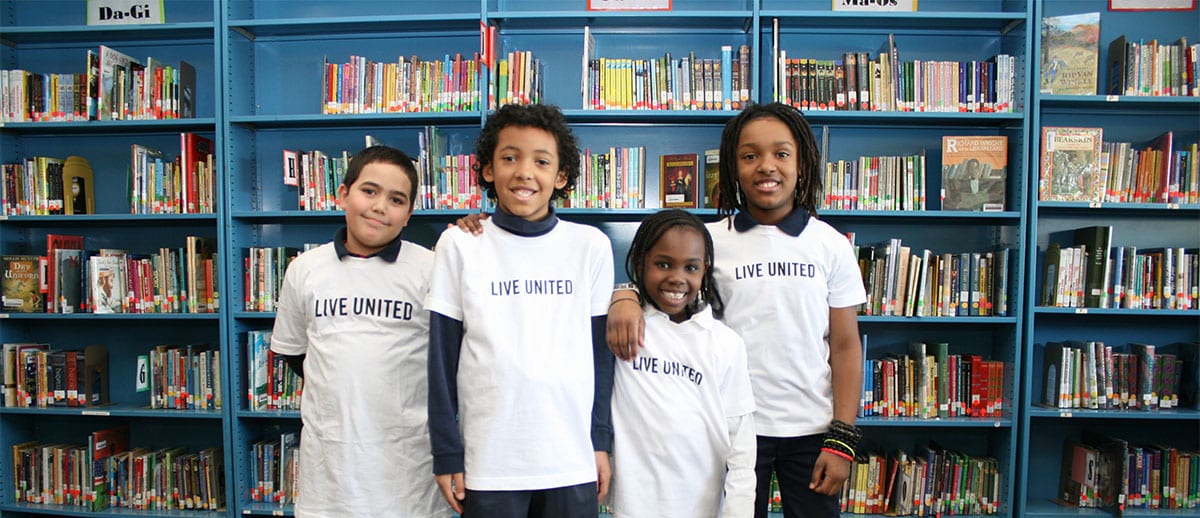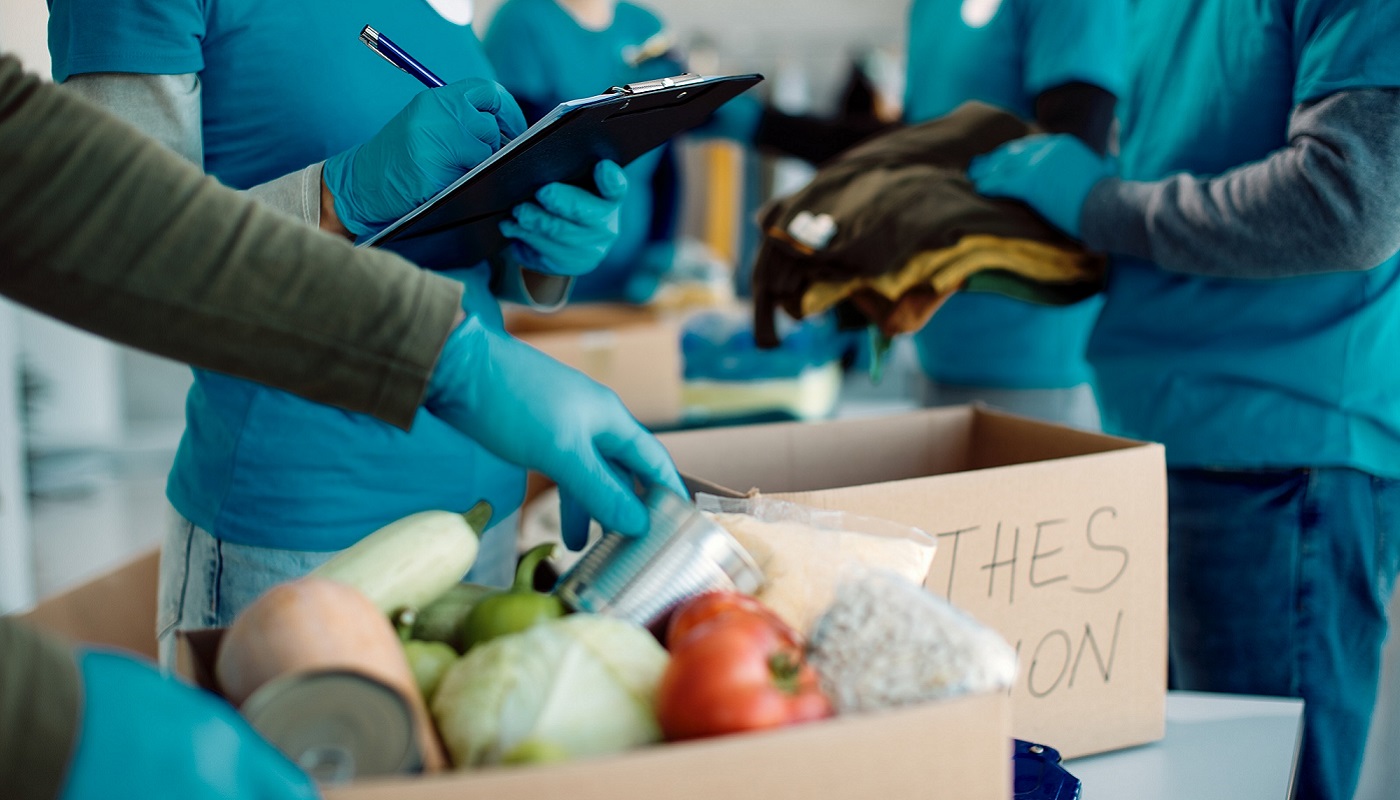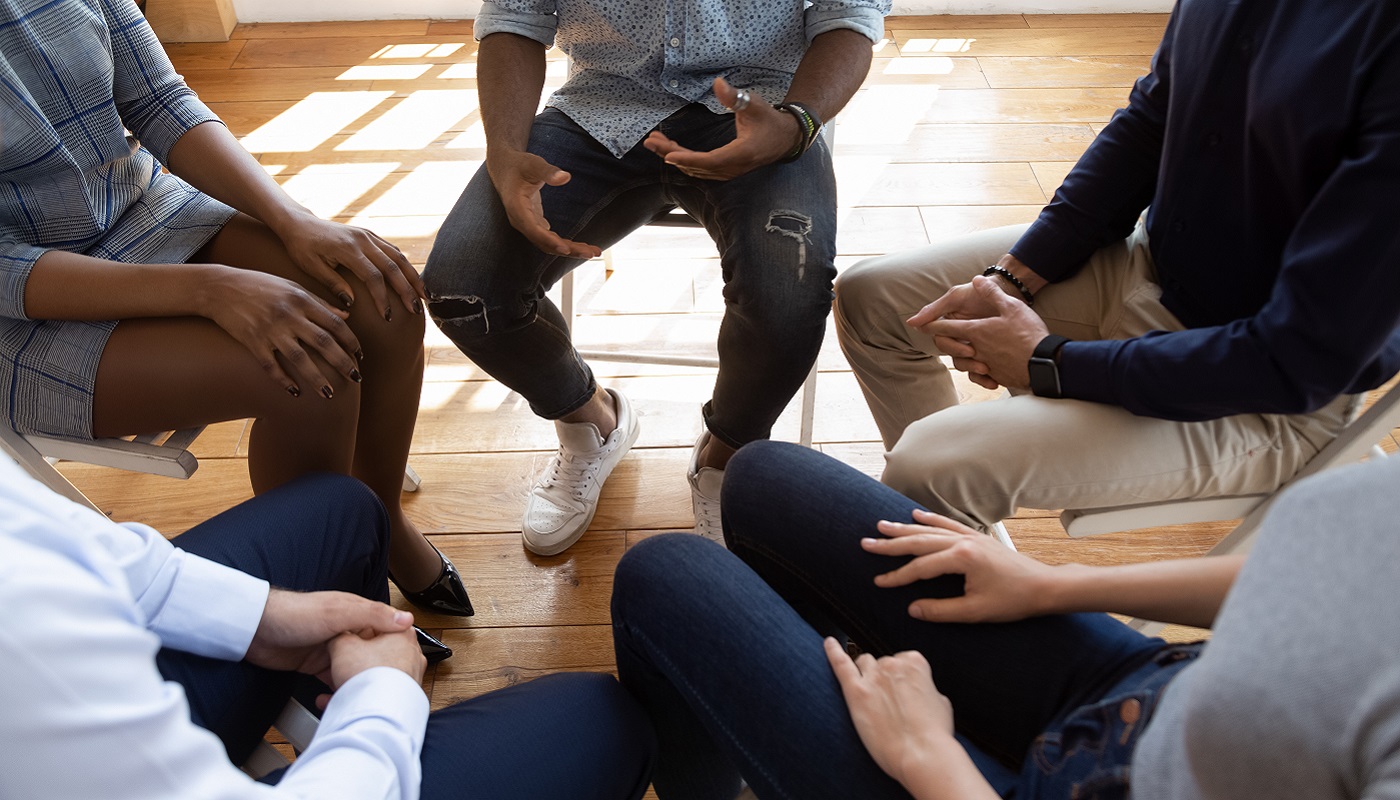
Reducing Disparities in Access to Mental Health Care
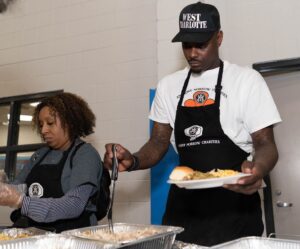 Growing up along Charlotte’s West Boulevard corridor, Anthony Morrow frequently saw friends and peers getting into fights, facing school suspension and, sometimes, dropping out because they didn’t feel like they had safe spaces for expressing their frustrations or troubles. Comprising over a dozen neighborhoods in west Charlotte, the corridor has lacked opportunity in comparison to other areas of the city—with gaps in infrastructure, workforce development, youth programs, transportation, housing and more.
Growing up along Charlotte’s West Boulevard corridor, Anthony Morrow frequently saw friends and peers getting into fights, facing school suspension and, sometimes, dropping out because they didn’t feel like they had safe spaces for expressing their frustrations or troubles. Comprising over a dozen neighborhoods in west Charlotte, the corridor has lacked opportunity in comparison to other areas of the city—with gaps in infrastructure, workforce development, youth programs, transportation, housing and more.
“I’ve felt like the corridor has been out of sight, out of mind. I see a lot of kids not able to make connections and kids never making it out of the corridor,” said Morrow, a native Charlottean. “There was never an outlet or mental health program for kids there when I was younger.”
Morrow’s own determination propelled him out of the corridor into Charlotte Latin School, followed by graduation from Georgia Institute of Technology (Georgia Tech) and later a 10-year career in the NBA. Always remembering his West Boulevard roots, Morrow ultimately would return to his hometown and provide ways to support young adults’ physical and mental well-being.
Prior to moving to Charlotte in 2006 with her young son, Atlanta native Aura Davis struggled with mental illness following the tragic death of her fiancé, Wilson. While seeking support and working to improve her mental well-being, Davis realized not everyone like her has access to critical mental health services.
“After realizing mental health illness was really affecting people who look like me, I wanted to be part of the solution,” Davis said. “Mental health should be a basic need. Every day I wake up, I’m trying to figure out how to help people.”
Davis’s passion to help people who’ve experienced trauma, grief and anxiety like her own led her to complete a Bachelor’s degree in psychology with a minor in public health from UNC Charlotte in 2019, followed by a Master’s degree in marriage in family therapy from Pfeiffer University later the same year. Today, she’s made it her mission to help others gain access to mental health resources.
Eliminating Barriers to Needed Care
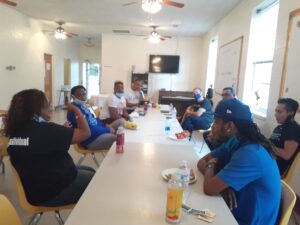 Every year, millions of Americans with mental illness have trouble finding mental health care, having to navigate through obstacles including affordability, limited availability and stigma. Morrow and Davis lead two grassroots organizations in Charlotte that are eliminating barriers to mental health care access, particularly within minority populations.
Every year, millions of Americans with mental illness have trouble finding mental health care, having to navigate through obstacles including affordability, limited availability and stigma. Morrow and Davis lead two grassroots organizations in Charlotte that are eliminating barriers to mental health care access, particularly within minority populations.
Morrow leads the nonprofit Anthony Morrow Charities, which he founded in 2013. The organization provides programs for underserved youth and families that build positive character, strong bodies and focused minds through participation in fun, friendly and safe environments.
Davis is the founder and executive director of Wilson Oasis, a nonprofit started in 2019 and named in honor of her late fiancé. The organization provides mental health counseling and resources for people, particularly Black men, who face barriers when attempting to access and maintain mental illness care.
Anthony Morrow Charities and Wilson Oasis are United Way Unite Charlotte partners. Unite Charlotte was founded in 2016 by United Way of Central Carolinas following civil unrest sparked by the killing of Keith Lamont Scott, an unarmed Black man, by Charlotte police. The initiative provides funding and capacity-building programs to local grassroots organizations advancing racial equity and addressing economic mobility.
The work and mission of Anthony Morrow Charities and Wilson Oasis align with United Way’s commitment to supporting programs and initiatives that reduce health disparities and strengthen the overall well-being of our community.
Building Strong Bodies and Minds
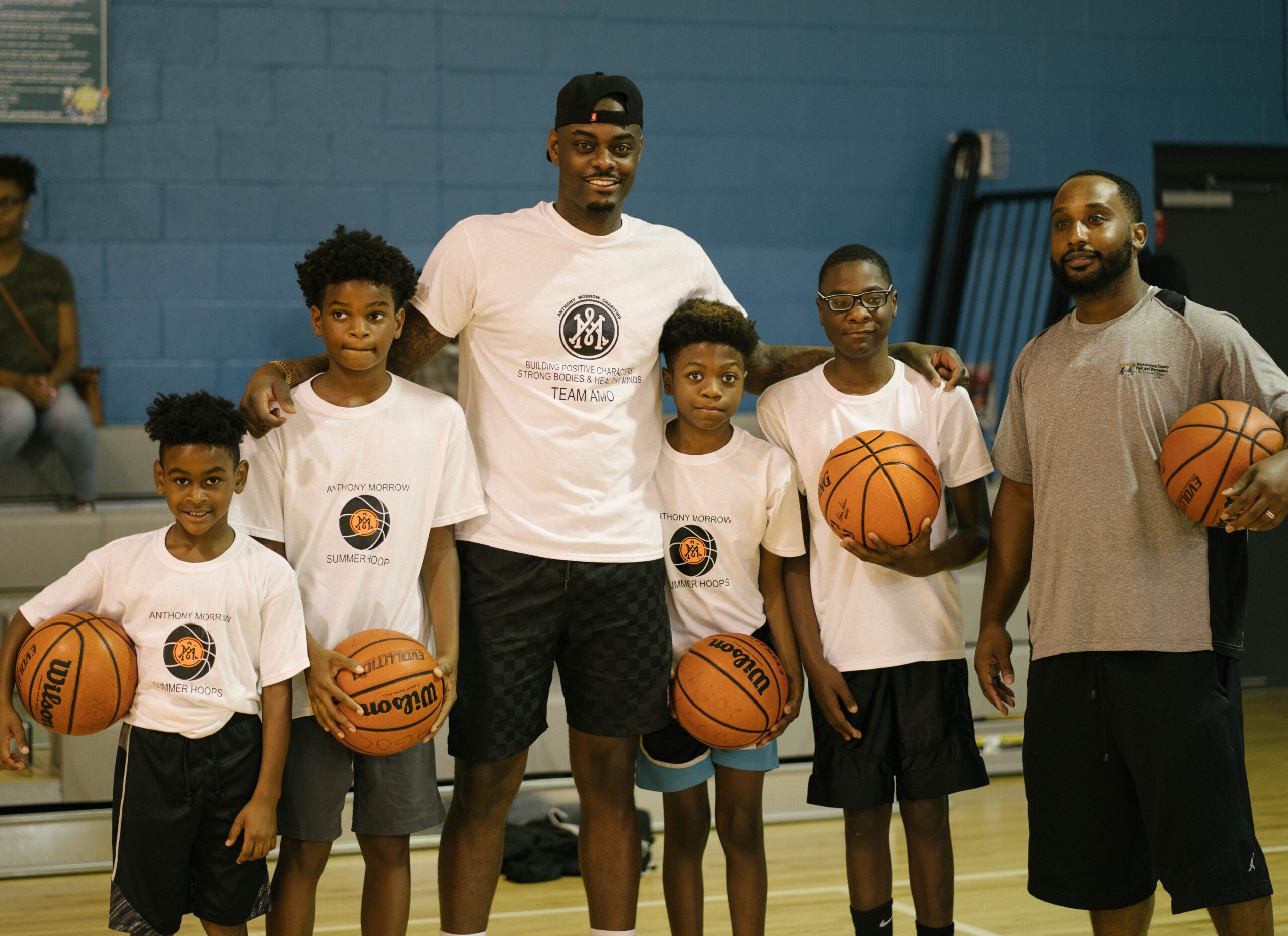 Morrow embodies a “Say YES” (Youth Empowerment Services) philosophy at Anthony Morrow Charities to promote respect, understanding and cooperation among youth and young adults, while working to develop their mental, physical and spiritual health to the fullest potential. The Healthy Bodies & Minds program offers free physical health screenings, basketball clinics and mental health resources for schools and underserved neighborhoods along the West Boulevard corridor.
Morrow embodies a “Say YES” (Youth Empowerment Services) philosophy at Anthony Morrow Charities to promote respect, understanding and cooperation among youth and young adults, while working to develop their mental, physical and spiritual health to the fullest potential. The Healthy Bodies & Minds program offers free physical health screenings, basketball clinics and mental health resources for schools and underserved neighborhoods along the West Boulevard corridor.
“A lot of students have started to really understand each other and see that they are going through similar things,” Morrow said. “We wanted them to be able to communicate, share and relate to their peers in a safe way versus holding things in like anger and disagreements.”
The six-week mental health pilot program at Martin Luther King, Jr. Middle School began with a handful of students and ended with about 30 students, Morrow said. The program aims to help students improve academic performance, receive fewer behavior referrals, have a greater sense of self-worth and build healthier relationships with peers, teachers and families.
“The No. 1 initiative for us right now is mental health. If there are more of these types of programs available to youth, then they’ll be more open to learning how to handle miscommunication and misunderstanding,” Morrow said. “It’s something I wish we had in middle school, especially for young Black men and women and the circumstances we’d grown up under.”
Improving Self-Care and Stability
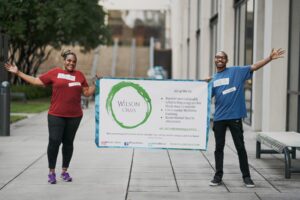 At Wilson Oasis, Davis is carrying out the mission to offer the community mental health enrichment programs and training to help raise awareness, reduce barriers to access and encourage people to maintain positive mental health. Through the Wilson Oasis Scholarship Program, Black men 18 and older can apply to receive funding for counseling/coaching sessions with licensed professionals and additional mental health resources.
At Wilson Oasis, Davis is carrying out the mission to offer the community mental health enrichment programs and training to help raise awareness, reduce barriers to access and encourage people to maintain positive mental health. Through the Wilson Oasis Scholarship Program, Black men 18 and older can apply to receive funding for counseling/coaching sessions with licensed professionals and additional mental health resources.
“I’ve realized that Black men don’t always feel that they have a safe outlet to share what they’re feeling and going through,” Davis said. “They’re also less likely to receive mental health care but more likely to face mental trauma and barriers to care. Sometimes it’s also the lack of knowledge about how to get mental health resources, and not just about a lack of funding.”
Since launching Wilson Oasis, Davis said her proud moments include providing over 300 counseling sessions to individuals, hosting 25 community mental health resource events, partnering with nearly 20 local therapists and seeing 10 men complete all counseling sessions through the scholarship program.
“With greater access to more resources and services, we can reduce the stigma of mental illness and improve our community’s well-being,” Davis said. “It’s about trust and stability with our organization. I just genuinely want to help; there’s no gimmick.”
Planning for the Future
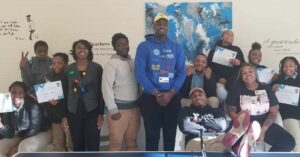 As the need for mental health services increases, Morrow and Davis are eager to grow their respective nonprofits in the near future. Morrow has plans to introduce the Healthy Bodies & Minds program to more schools and students, and Davis looks forward to expanding the Wilson Oasis Scholarship Program to serve more men.
As the need for mental health services increases, Morrow and Davis are eager to grow their respective nonprofits in the near future. Morrow has plans to introduce the Healthy Bodies & Minds program to more schools and students, and Davis looks forward to expanding the Wilson Oasis Scholarship Program to serve more men.
“I think the mental health gap is going to take a long time, unfortunately, to catch up,” Davis said. “Things happening in society have made it more difficult, and there are so many layers affecting mental health. We’re going to continue to be consistent, available and raise awareness.”
Both founders are more confident in planning for growth with support they receive through Unite Charlotte, including capacity-building training with Duke University’s Center for Continuing Studies. The Duke University program offers a curriculum tailored to nonprofits’ needs to help them understand the business of nonprofit management.
“I take a lot of pride in being able to make an impact in the community directly. United Way believes in what we’re doing—it’s very encouraging and inspiring,” Morrow said. “Starting out, [grassroots organizations] don’t always get these types of partnerships. I’m happy we’re being acknowledged and strengthening the relationship so we can continue making an impact.”
Support Unite Charlotte partners like Anthony Morrow Charities and Wilson Oasis by giving today.


